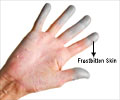Q: If I suspect symptoms of scleroderma which doctor should I go to?
A: Your GP may want to refer your case to a Dermatologist or skin specialist who may take the help of a Rheumatologist (a doctor who treats diseases like arthritis), Internal medicine expert, Nephrologist, Cardiologist, GI specialist, and a Dentist depending on the symptoms.
Q: Is scleroderma likely to affect my life?
A: Yes, scleroderma will affect the patient’s ability to go about their day-to-day activities, how they feel about themselves and the way they look. It could come in the way of relationships, impair the ability to have babies and change life altogether.
Q: How can the patient help?
A: The patient must learn and understand more about the disease, extend full co-operation and should follow the doctor’s advice implicitly. He must never fail to take his prescribed medications and must be quick to report problems. Learning coping skills, in order to do daily tasks, can be of immense help.
It would also help to join a support group to tide over the shock and depression that is likely to follow a diagnosis.
Q: Can I get married if I have scleroderma?
A: Scleroderma can affect the way you look, and feel about yourself, forever.
It can affect your relationship with your spouse and interfere with your sex life. Although there are indications of genetic factors being involved it is not clear if the disease will be transferred from parent to offspring.
It would be wise to keep the overall picture in mind before embarking on marriage.











